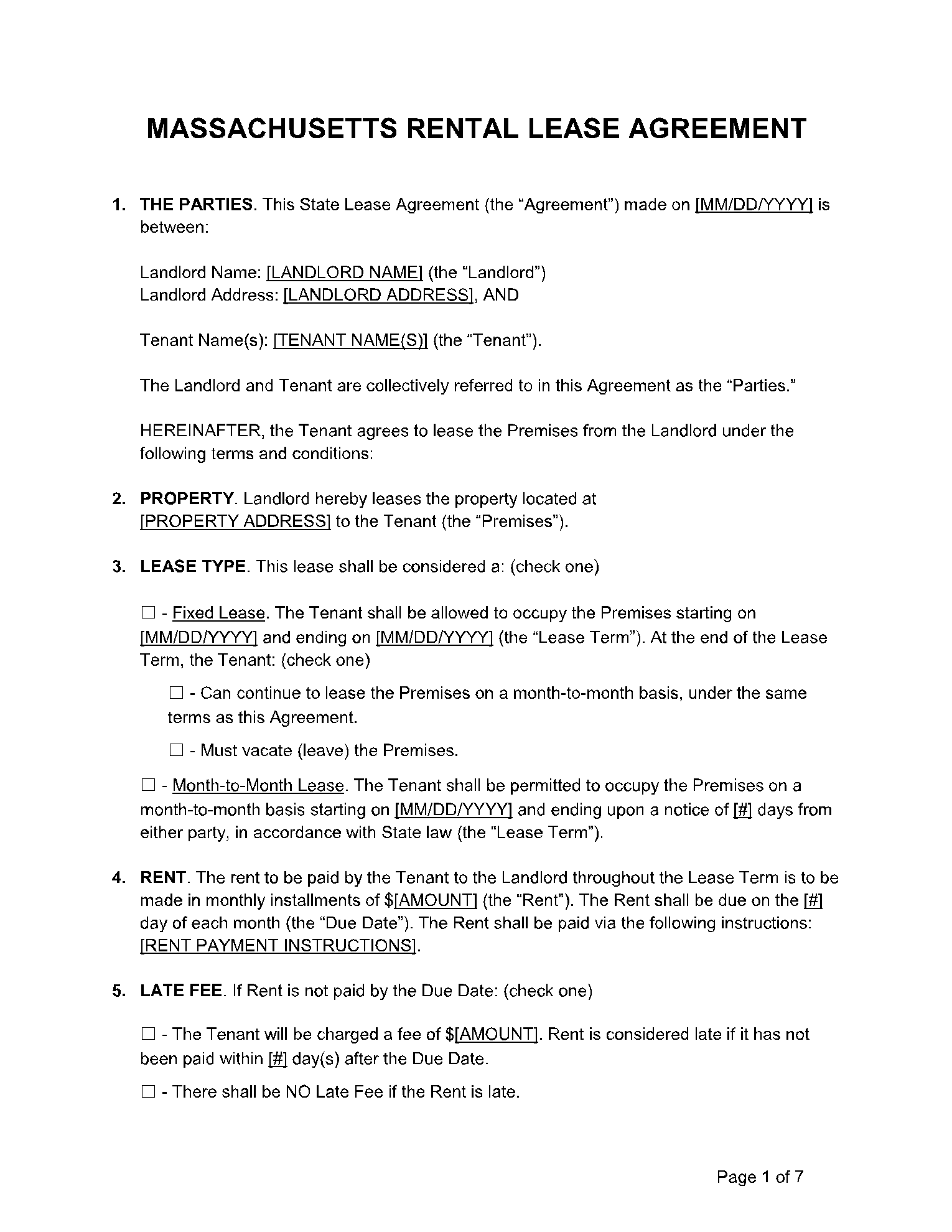Introduction
A Massachusetts Residential Lease Agreement is a rent explicit to investment properties. It traces the terms and states of occupancy, including the landowner’s rights and commitments and tenant. Residential Lease Agreements can be utilized for different sorts of private properties, including condos, houses, apartments, etc.
Residential Lease Agreement Incorporates
There are a few revelations that should be cooperated in a Massachusetts residential lease agreement:
The data pertaining to terms and states of fire protection covering the property may be revealed to the occupant within 15 days from the beginning of the tenure.
The landowner who is getting the security deposit or the occupant moving in (whichever is later), the property manager should provide an inventory agenda that gives the inhabitant space to record fixes that should be made or abandoned anywhere.
The landowner should give the inhabitant the name of the bank, the bank area, and the record number for the record where the security store is kept. This assertion should likewise incorporate the measure of the security store within 30 days.
Massachusetts Residential Lease Agreement Deposits And Fees
Landowners may not request over one month of the lease as a security deposit. The security deposit should be returned within 30 days of the tenant leaving the property. Moreover, Security deposits should likewise be kept in a record that gathers at the rate the bank gives in the State of Massachusetts. If the landowner neglects to offer fundamental types of assistance, the occupant may retain a lease that ought to be saved in the agent of the courts.
However, following a 14-day composed notification, the tenant may fix and deduct the lease. Moreover, the lawyer charges are recoverable by the property manager. They don’t possess any rule expressing whether the property manager should make sensible endeavors to relieve harms, just as any to re-rent.
Rental Agreement Implementation
When a tenant breaks a rent, one of the potential roads to get a cure is through a removal activity. There are three principal reasons a landowner can expel an occupant:
-
- Inability to pay lease
- Illicit lead on the leased premises
- Break of the rent understanding
A landowner should give a tenant sufficient opportunity to fix the issue, and the time the property manager should permit relies upon the justification of the expulsion. Moreover, expulsion is the most amazing asset a landowner has against a resistant inhabitant. Picking whether to utilize that instrument is a significant choice, and experienced lawful direction can help you choose whether that is the suitable solution for your circumstance.
Massachusetts Rental Application Laws And Regulations
According to rental standards and guidelines, it is illicit in the province of Massachusetts to charge a tenant an “application expense.” On the contrary, Massachusetts is exceptionally friendly, which implies the situation and asks the landowner to chomp the application’s expense.
As per the laws, landowners cannot ask about an occupant’s race, religion, sexual direction, age (except if it’s a minor), marital status, or if the inhabitant is impaired or in the military. On the off chance that a landowner poses an occupant any inquiries relating to these subjects on the application or orally during a gathering, they directly infringe the law, and lawful moves can be made against them.
Conclusion
Massachusetts designates that security deposits may not surpass what could be compared to one month’s lease. Furthermore, the property manager should pay the tenant a 5% premium each year or the Massachusetts bank’s premium. When the rent is ended, the property manager has 30 days after the rent ends to return the occupant’s deposits.
